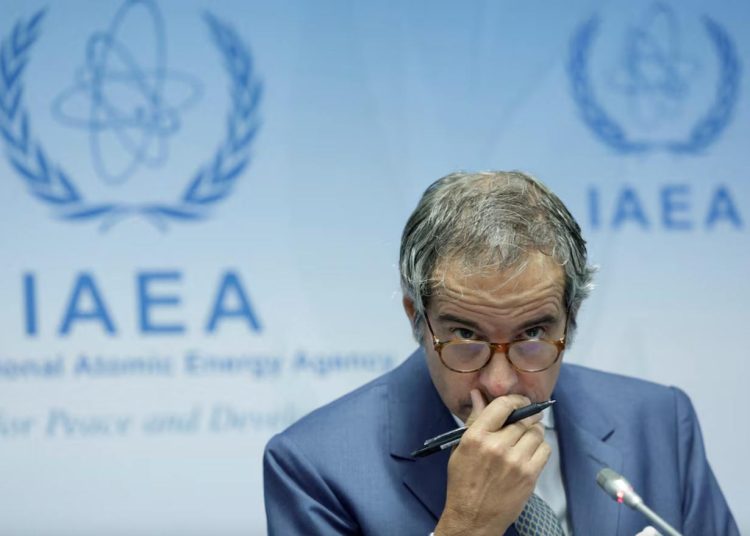There are concerns regarding the IAEA chief’s reports on Iranian nuclear activities, particularly in the context of ongoing cooperation and the historical complexities surrounding the country’s nuclear program.
By Jafar Sherdoost
Following the submission of the IAEA Director General’s reports on safeguards and the JCPOA on February 26, 2025, a detailed perspective deems necessary regarding the contents and methodology of these documents. This article analyzes the key points, assessing the report’s objectivity, procedural accuracy, and political context. It is essential to evaluate how these elements influence the overall credibility of the IAEA’s assertions regarding Iran’s nuclear program.
- Ambiguity Regarding the Comprehensive Report
The Director General’s safeguards report mentions a request for a comprehensive and updated evaluation concerning the presence and use of undeclared nuclear material related to outstanding issues, both past and present, regarding Iran’s nuclear program. However, the report lacks clarity on the timeframe within which this evaluation is expected to be completed. This ambiguity raises questions about the nature and the intended scope of this assessment, potentially fueling the assumption that argues in favor of the political function of the report.
- Overlooked History of Cooperation
Iran’s history of cooperation with the IAEA has often been underappreciated and insufficiently highlighted in the Agency’s reports and statements by European countries. Iranian views stress that the rich history of cooperation has rarely been highlighted in official documents or public statements by member states. This omission could potentially undermine the demonstrated track record of compliance and transparency that Iran has maintained, thereby skewing the overall narrative presented in the reports.
- Repetitive Negativity and Lack of Professionalism
The reports contain numerous remarks that carry a generally negative tone. These statements, which have now become almost routine in both the safeguards and JCPOA reports, are frequently labeled as unfounded. Both the safeguards and JCPOA reports tend to reiterate merely negative aspects, which detracts from the reports’ professionalism. A balanced and objective assessment should acknowledge both positive and negative developments, rather than consistently emphasizing potentially problematic elements. The propagation of such negative narratives contributes to an atmosphere of distrust and sensationalism, questions the precision of the reporting.
- Influence of Political Pressure and Unsubstantiated Claims
There is a strong perception that the reports prepared by the Director General are influenced by political pressure from Western countries and claims made by Israel. It is crucial that the IAEA chief’s reports be based on objective and factual information, rather than conjecture, allegations, or politically motivated agendas. The credibility of the IAEA depends on its ability to conduct impartial assessments, free from external interference. This perceived politicization of the reports calls into question the impartiality and integrity of the IAEA’s assessment methods.
- Misrepresentation of Location-Related Issues
The Director General’s report mentions four locations of concern, while only two remain unresolved. The other two have been addressed and closed. The remaining issues at the two locations relate to contamination, which does not pose a proliferation risk and should not impact the IAEA’s ability to assure the peaceful nature of Iran’s nuclear program. There is no indication of highly enriched uranium or diversion of nuclear material in those locations. The presence of contamination in the locations does not necessarily imply illicit activity.
- Premature Disclosure of Safeguards Discussions
Certain matters that are still under discussion in the safeguards dialogue are included in the IAEA chief’s reports before they are finalized. This practice is unprofessional and undermines the integrity of the ongoing discussions. It can also create unnecessary speculation and impede the resolution of outstanding issues.
- Violation of the Presumption of Innocence
The Director General’s recent statements, including those made in Japan, deviate from basic legal principles, such as the presumption of innocence. Demanding that Iran prove it is not pursuing nuclear weapons is an unprecedented position that undermines the credibility of the IAEA. The burden of proof should rest on those making the accusations, not on the accused to disprove them.
While Iran recognizes the importance of IAEA oversight and is committed to fulfilling its safeguards obligations, there are significant concerns regarding the objectivity, fairness, and professionalism of the Director General’s reports. It is essential that the IAEA maintains its independence, resists political pressure, and bases its assessments on factual information and a balanced consideration of Iran’s cooperation. A more nuanced and constructive approach is needed to address outstanding issues.
The views expressed in this article are those of the author and do not necessarily reflect the positions of Iran Nuances.





